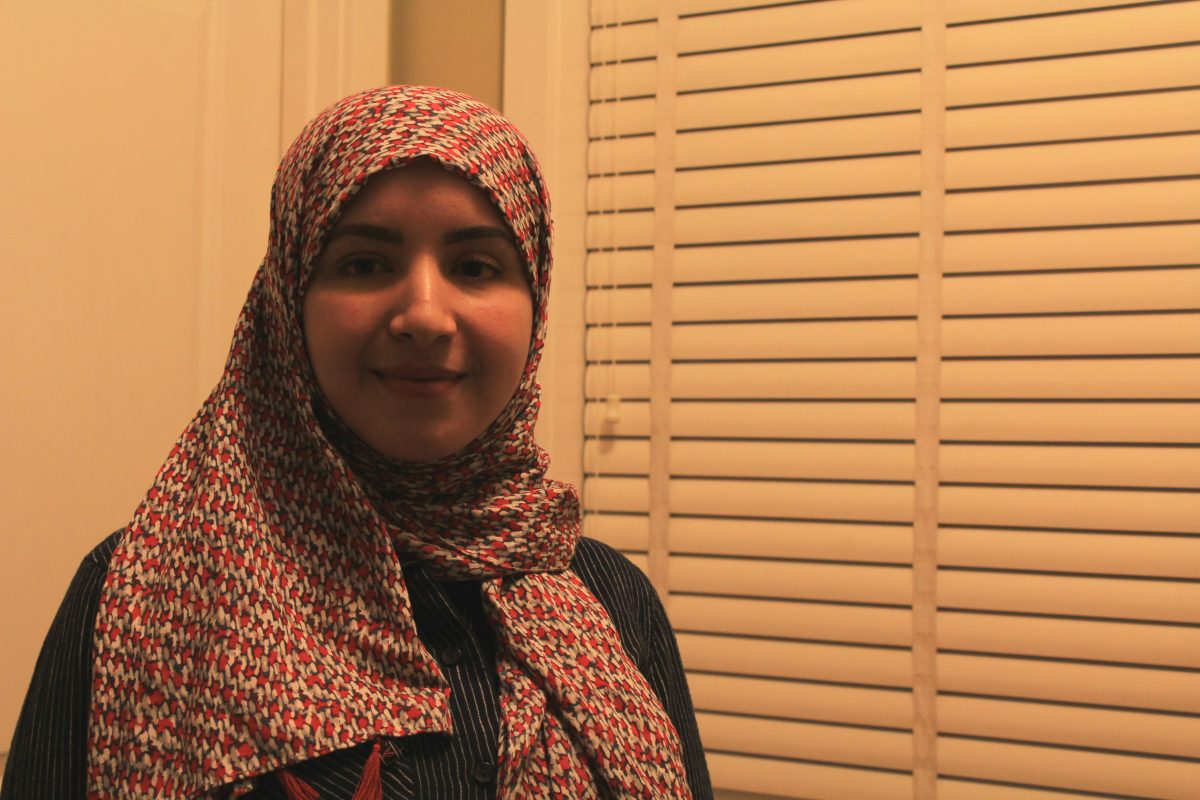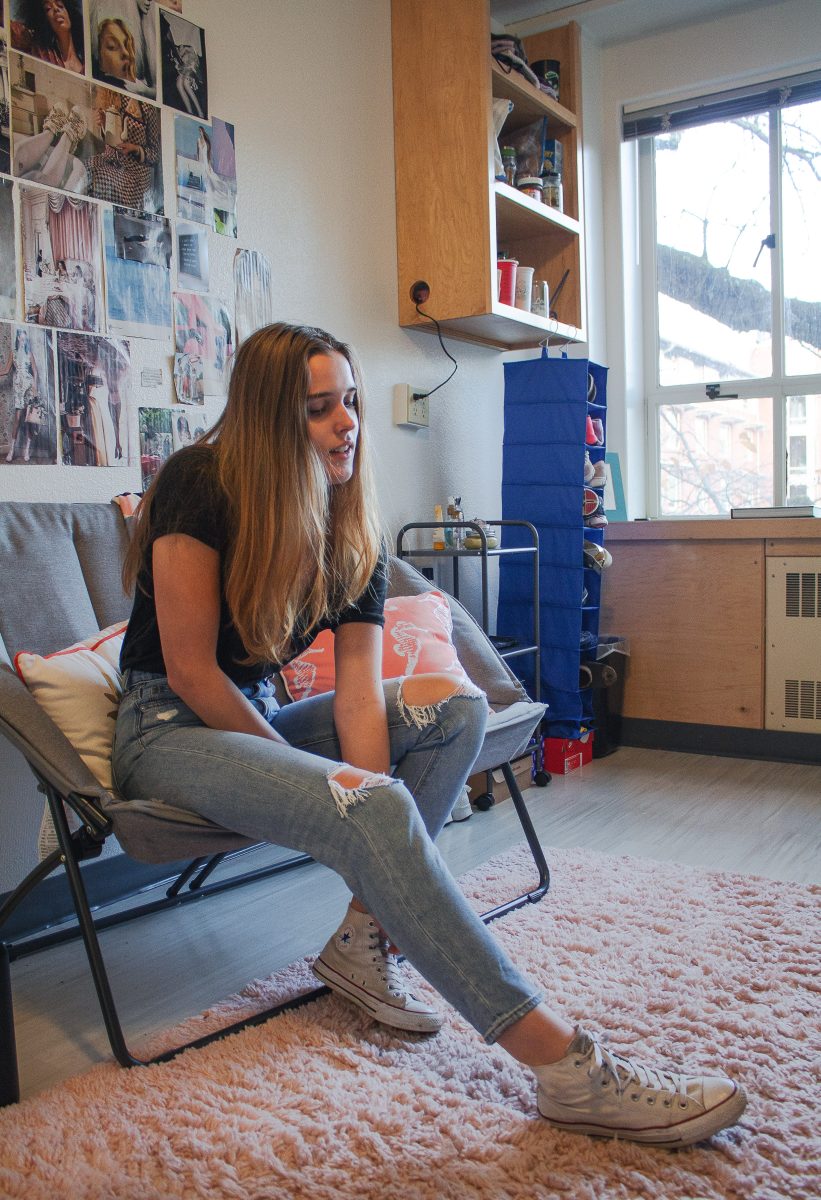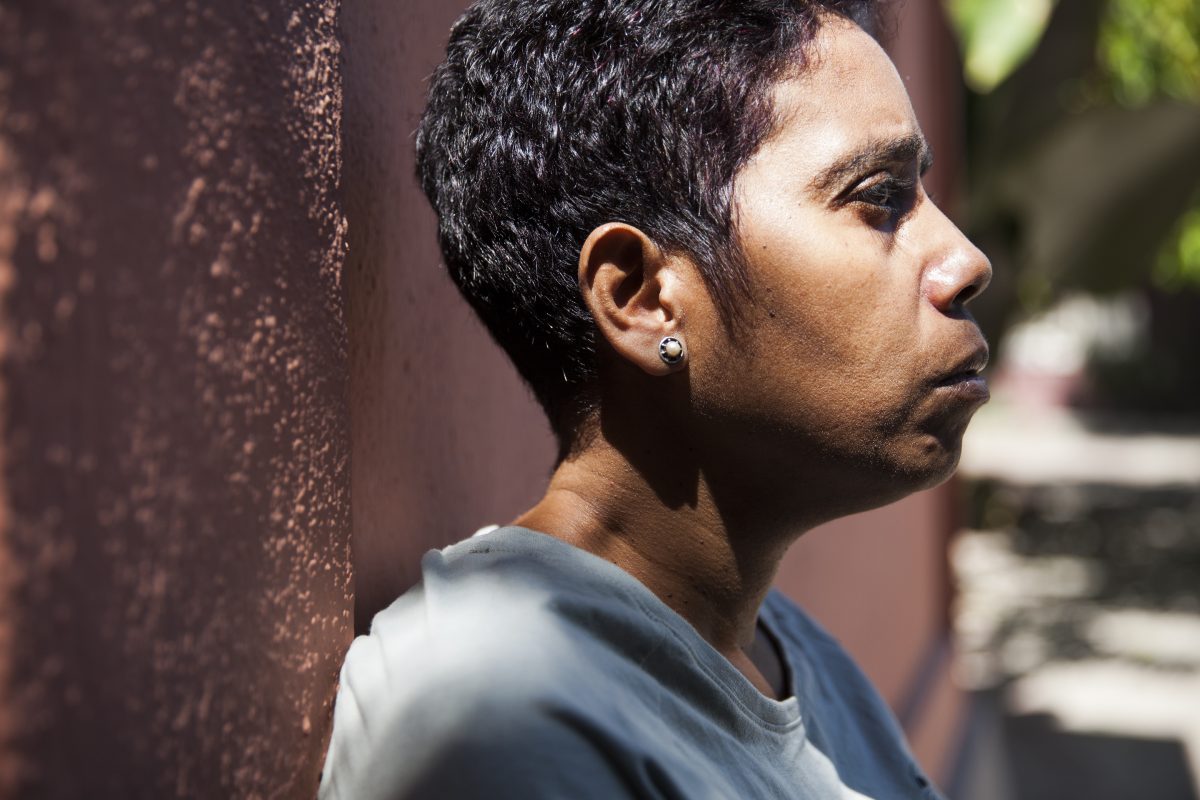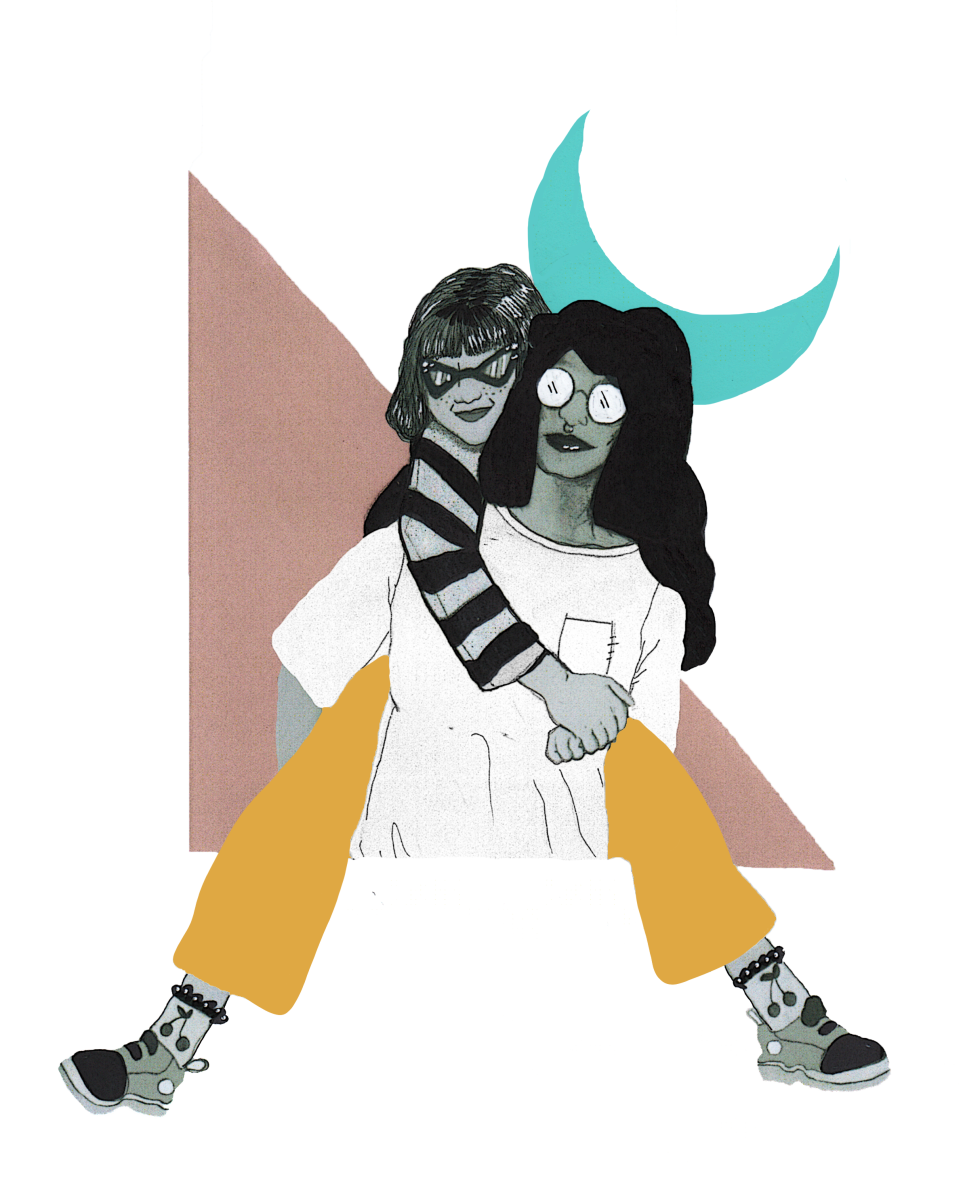Bombs and guns fired outside. People fear going out to the streets, even for something as simple as getting food. There was a chance they could get killed in an instant. Najla Almammari, pregnant with her 3rd child, her husband Mokhtar, and their two other children sought refuge in the living room of Mokhtar’s sister’s home, away from the windows. “It was very scary for me. I’ve never had guns and people fighting in my life. I didn’t go out,” Almammari says.
Najla and Mokhtar were visiting Yemen when the war first broke out in 2014. She and her family stayed two weeks in the capital, Sana’a, and waited until the airport opened. Many were trying to flee the country, so they had to buy a ticket to Egypt and then a ticket back to the U.S. “I thought it was going to stop. You always watch war on TV in different places and you never think that it’s going to happen to you, but it happened.” Almammari’s daughters laugh in the distance, playing in their new home that has never had the threat of being hit by airstrikes.
Almammari’s husband Mokhtar won the U.S. visa lottery in Yemen in the year 2000. It was years later that he met his future wife, who he eventually married in 2009. Both Almammari and her husband moved to Eugene, Oregon where she now goes to school, while being a full-time mother to her three daughters. Mokhtar owns Crescent Automotive, a car lot in Eugene. “I love Eugene. I feel more safe for my life and my kids’ lives here.” Almammari says, as her daughter sits behind her, watching a video on her mother’s phone.
When Houthi rebels entered the city of Sana’a in 2014, three years after Yemen’s president Ali Abdullah Saleh was forced to hand over his power to Abdrabbuh Mansour Hadi, the war broke out in Yemen. They took advantage of the president, and soon the rebels took control of the capital. This destroyed infrastructures, lacking food supplies, and rapid spreading of illness. Now, the war has slowly left Sana’a and has moved to the city of Taiz, Almammari’s home city. Some people are able to escape Taiz, where the impact of the war is extreme, and flee to safer villages, while others are forced to stay in the turmoil. According to the United Nations, the war in Yemen is “the world’s worst humanitarian crisis.” 60 percent of the population are food insecure, 55 percent of the population do not have regular access to safe water, and the education is in jeopardy, amongst many other unfathomable consequences the Yemeni have to face.
Although Almammari and her husband left Yemen before the war broke out, all of their family is stuck there and cannot get out. “Food is very limited. They cannot find the medicine. The hospital is bombed and not available for them, “Almammari said. “It’s very hard. Mokhtar was lucky.” Her family currently holds passports, but are still awaiting their visas. She still keeps in contact with her family by talking with them on the phone. She says that her family and friends are still good and healthy. I sit with Almammari in her Eugene home, smelling of Yemeni coffee. Pictures of her, her husband and daughters hang on the wall. She looks at me, wearing her hijab of a vibrant red and grey pattern, “All of that pain makes you stronger. My heart is getting stronger because this has happened to my country, to the people I know.” She reiterates that her family is stronger than she is. “They see people die in front of them and continue with their life, but it’s hard.”
Almammari reflects on the beauty of her country that once was, before the war. “Yemen was one of the nicest countries in the Middle East, surrounded by the Red Sea and the Arabian Sea,” she said. “We have a lot of trees and green mountains. That is why I love Eugene. It reminds me of my village in Yemen; the greens, the mountains. It’s very quiet.” Two of her daughters come out to the living room where we are sitting. Social and full of joy, one of them plays a song on their toy guitar. I take a sip of the Yemeni coffee that Almammari’s mother has sent her from her home country. It tastes of cinnamon and ginger.
However, amongst the beautiful landscape, she also recalls some of the memories of her country as if they are distant and damaged. “I remember my school, but now I see it in the news and it’s bombed. I feel like most of my memories are just bombed with that school,” Almammari sighs. Infrastructures like Almammari’s school continue to be bombed including some that are thousands of years old, damaging the country’s history. She looks at me with sadness in her eyes and says, “I never thought that one day I would be talking about my country in this way. I was so proud of my country,” she said. I thought ‘It’s a happy country, nice weather, everything is perfect!’ Nothing stays good forever.”
The war in Yemen has received very little coverage. Although it’s being regarded as the worst humanitarian crisis, why don’t more people know about it? Almammari raises her tone when I ask if the news is doing a good job at covering the crisis, “Not at all. They’re not even covering five percent of what’s happening there. It’s so bad.” She said, “I really want all the world to see what’s happening there.” There is an underlying political problem as to why the media doesn’t want people to see what is happening in Yemen, that there is a goal in this. She reinforces that we need to stop giving money for guns, and instead provide medicine and food.
Awareness and connectivity were two things Almammari stressed the importance of, when asked about how the war and the people involved in it can be helped.“We need to help the people, stay beside them. We need to forget about the colors, the language, the countries. We need to stay next to each other.” Almammari and her husband, along with family back in Yemen do their own part to help the country and its people that are in need. They tell their family to write down names of the people who are really suffering, so that they can send money for things like medicine and food. Almammari’s father takes food, money and medicine to these people, making sure that he gives it to them in their hands to be sure they are receiving it. “We are trying. I know it’s not a big thing because we don’t have that money, but at least we try,” she says.
The war in Yemen is ongoing, but Almammari manages to keep hope in her country and its people, “It’s going to end. It always goes up, up, up, but when it gets to the top it’s very hard and then it goes down like a mountain. So, I always have hope inside me. We’re not to going to give up looking for peace.”










![[Photo Courtesy of the Lara Family]
Ruben embraces his beloved childhood goat, Katrina.](https://ethos.dailyemerald.com/wp-content/uploads/2025/05/katrina-1-1060x1200.jpg)


